In his free time, Bill Wilson loves spending time with his family, cooking family meals, and watching his niece and nephew play soccer, basketball, and lacrosse. When he’s not rewatching his favorite Alfred Hitchcock films, attending concerts, or having dinner with friends, he likes to travel and see different places.
At work, he brings the same passion, vigor, and kindness to his role as Gaudenzia’s Chief Program Officer. Tasked with supporting the organization’s evolution to its current evidence-based, trauma-informed, culturally responsive, and gender-responsive treatment model, Bill spends much of his time conducting trainings, providing clinical supervision, and ensuring those seeking help with a substance use disorder (SUD) get the quality of care they need.
A self-described “die-hard Philadelphia sports team guy,” Bill says he was never as athletic as he would have liked, but he believes his astute nature, empathic manner, and genuine regard for other people brought him to the field of SUD treatment — and he’s never looked back.
This is Bill’s story.
If you or someone you love needs treatment for substance use and co-occurring disorders, please call Gaudenzia’s 24-hour Treatment and Referral HelpLine at 833.976.HELP (4357) or email HelpLine@gaudenzia.org
Some Accidents are Meant to Be
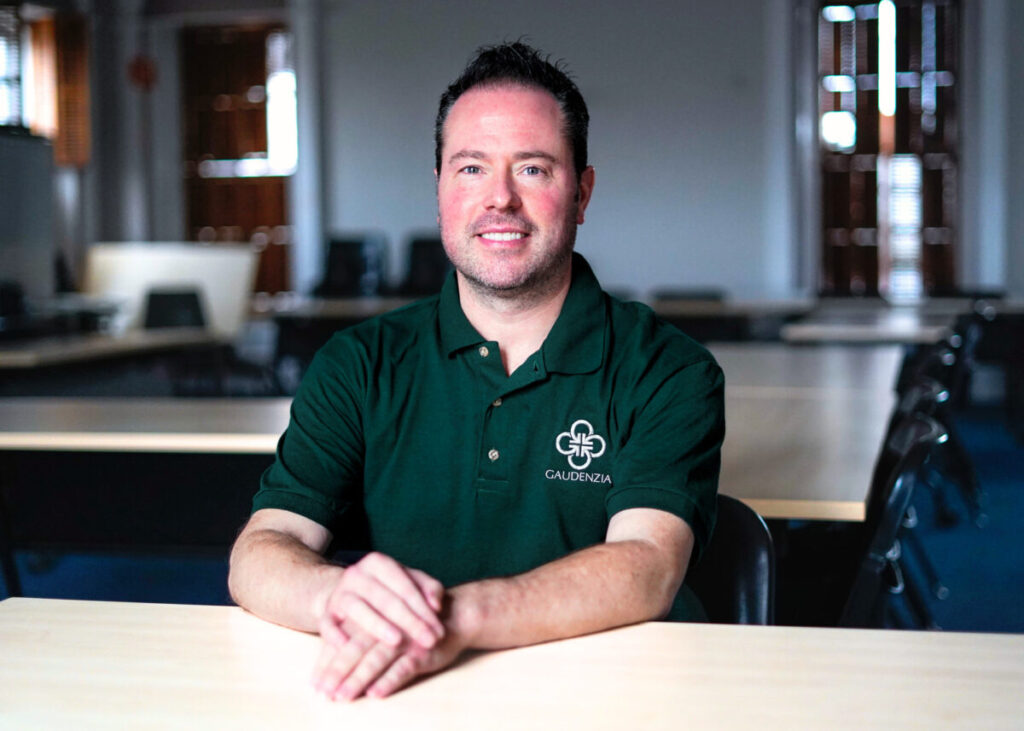
My entire life, I always knew I wanted to spend my career somewhere in the helping profession. I anticipated going to medical school to become a pediatrician, as I always had an interest in working with children. After a hard-fought tussle with organic chemistry, it was clear medical school wasn’t in the cards for me. This overnight realization was tough to swallow at first. I literally had kindergarten-aged activities that said I wanted to be a pediatrician. Luckily, with support from friends and family, I was able to see that doctors aren’t the only people who can have a meaningful impression on others and on the world. I realized there are many ways to make an impact and help others.
After a lot of deliberation, going into the psychology/social work field made perfect sense as a career choice. It was important to me that I utilize what I perceived as my strengths, namely, my listening capability, my emotional intelligence, and my ability to connect with others and demonstrate empathy. I started my professional career as a case manager in a non-profit treatment program that specialized in working with incarcerated individuals on community release.
I was, however, still convinced I wanted to work with children and adolescents. It was the first place to offer me a job after graduation, so I took it thinking I would leave as soon as I found a job working with youth. Instead, I immediately gained a passion for working with justice-involved individuals struggling with SUD. I ended up staying with this population for the first 21 years of my career. Some accidents are meant to be.
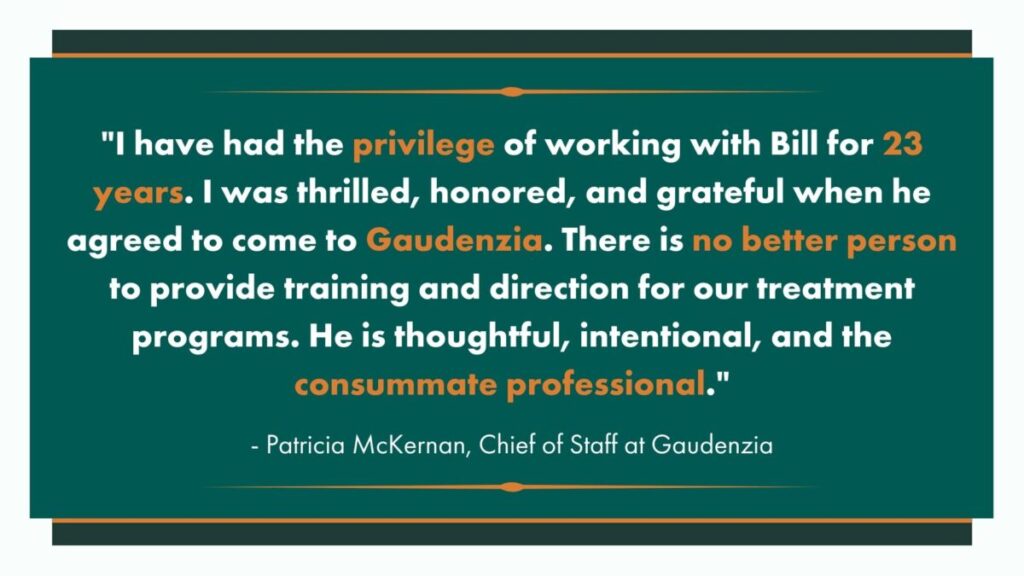
The Importance of Advocacy
I cannot recall a time of self-doubt about entering this field. It always felt like a good match for me. Even when it was challenging or not always “feel-good,” I still felt like I was in the right place. One of the most challenging moments of my career was when I had a client who was doing very well in treatment, making tremendous progress, and showing evident signs of change. Unfortunately, the client attended a parole hearing where, because of his status offense alone, he was taken out of treatment and put back in prison based on state sentencing standards.
The look on his face when I had to explain this to him and encourage him not to abscond and to stay motivated was heartbreaking. I remember that day like it was yesterday. I felt deflated and angry at what I perceived as the unfairness of it all. Luckily, I’m not one to harbor negativity too long. I decided this singular event could either be a motivator to make changes or to wallow in a broken system. I understood the importance of advocacy in such a different way after that day.
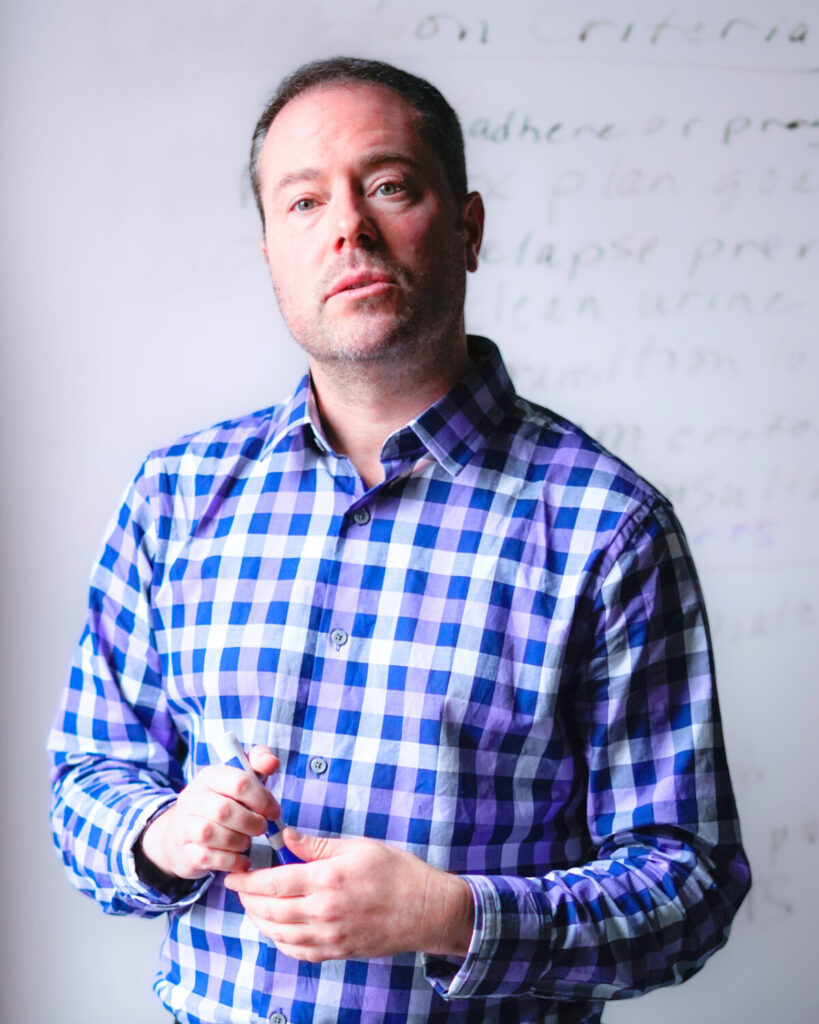
A Great Bridge
As my career developed, I found myself being promoted to more supervisory or administrative positions, yet the aspects of these administrative roles that kept my fire kindling were the responsibilities of clinical supervision and training. Despite always telling myself I didn’t want to be a teacher, my career brought me into chiefly conducting staff development training and clinical skill development. For me, this was a great bridge from the day-to-day clinical client work to the larger leadership roles as I was taking on.
Early in my career, most individuals working in the field did not have graduate degrees, and certainly did not have professional licenses. It was generally understood that advanced degrees and professional credentials were only required to treat commercial insurance or more “affluent,” paying clientele. This struck me as odd, considering the complex range of needs with which the underserved client base we work with presents.
Devoting my career to the efficient administration of programs that serve this special population was important, however, it was the commitment to ensuring staff had access to cutting-edge, evidence-based, skill-based training and supervision to provide the highest quality care our clients deserve that has kept me emblazoned to continue devoting myself to this field.
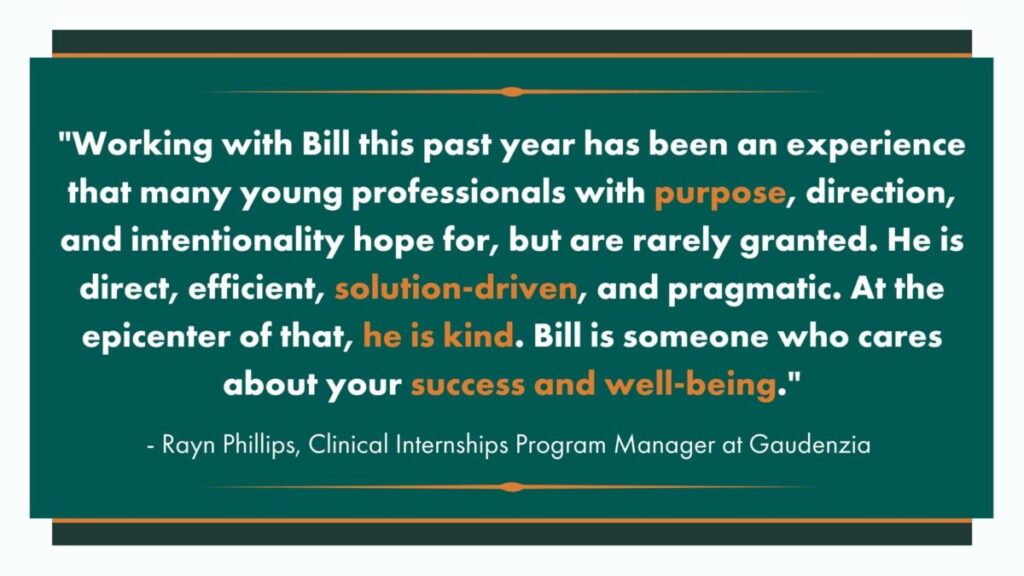
People Change Every Day
My role as Chief Program Officer at Gaudenzia is multi-layered. I was brought into the organization chiefly to create a treatment model that would support Gaudenzia in moving from a historically traditional Therapeutic Community approach to a more contemporary model inclusive of evidence-based interventions, trauma-informed care, cultural inclusion, and gender-responsivity. The work in many ways is personal for me. Like so many other people here, SUD has touched us on some level, either individually or via a family member or good friend. I have seen classmates die way too young due to substance use. I have supported family members trying to recover from an SUD first-hand.
My advice to people entering the field is not to allow disillusionment to alter their lens too much. We do a poor job in educational settings preparing people entering this workforce for exactly what to expect. This work is more than sharing a cup of coffee with clients and talking it out all day. Some rules don’t make sense. Some policies don’t make sense. The system is not perfect. At the same time, people change every day. They either change because of you, they change despite you, or sometimes they don’t change in response to you at all. Be intentional about which side you work harder to be on in that regard.
If You Knew, You Would be Amazed
I would love for treatment providers, policy makers, and the public to acknowledge and shed the traces of the Moral/Legal Model that still subtly (and sometimes not so subtly) persist in this field. The concept that at the core basis, people who use substances are making a conscious decision to do so and can stop if they really wanted to, or that people who use substances or engage in crime are ultimately just bad, or weak, or morally challenged. So often, I hear from people who do not work in this field, “How did they end up as bad as they did?”
My response almost 100% of the time is, “If you knew what most of these individuals have been through, you would be amazed that they are doing this well and that they have come this far.”
I urge policy makers to be more open to asking experts what is effective and meaningful in treatment, as opposed to making up regulations that serve no meaningful client purpose. We have a lot of opportunity to collaborate with regulatory bodies to create impactful dialogue and improve the system of care.
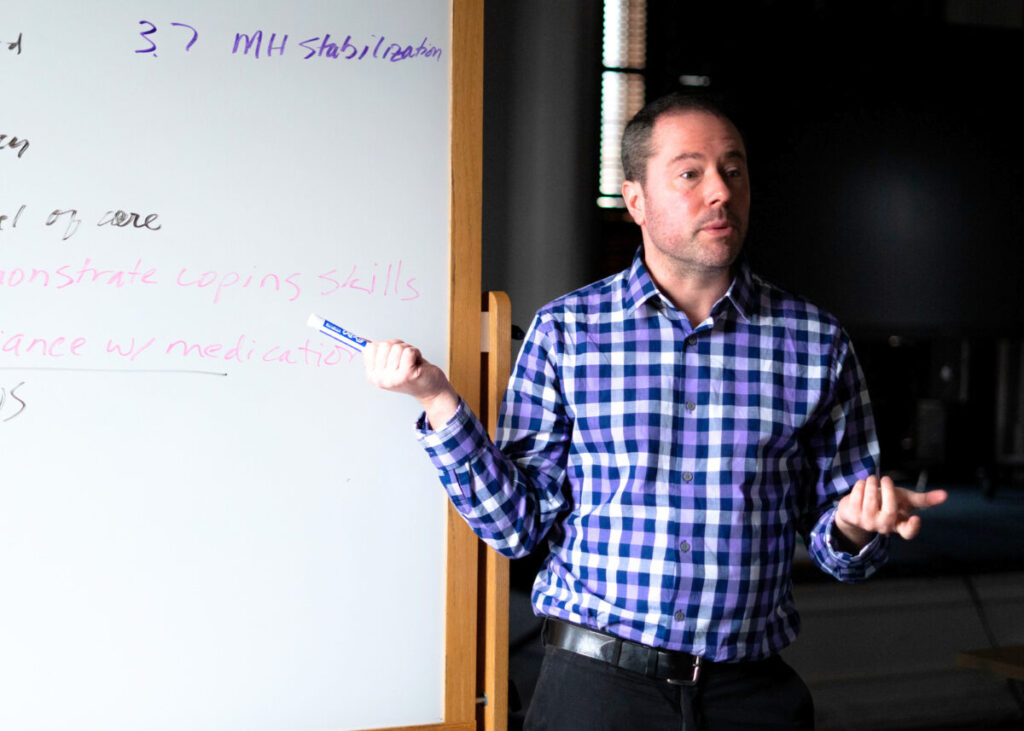
Keep Your Own Cup Full
The biggest lesson I’ve learned in leadership is to include the voices and needs from people at all levels. When you only value the thoughts and ideas of the highest level of leadership, it morphs into “me-dership” instead. It’s so easy to get caught up in your own thoughts, ideas, and plans, but true leadership is seeing the road ahead from the eye-line of all those involved in the race — not just the lead runner.
I’m a very big fan of perspective taking. Keeping an accurate, deliberate, and intentional view of the work is important. Do you choose to attach yourself to overdose rates, challenging regulatory requirements, or a less-than-perfect system of care? Or do you choose to take stock in what is working, see the beauty of change, and embrace the opportunity — and responsibility — of being a battery charger of optimism?
There are many ways to keep team members motivated, but I think the key is to constantly check in to make sure they are as focused on the success stories, achievements, and mini victories as much as they are on the challenges. Because we have such solid, genuine hearts, we fall into spaces of wanting everyone to heal, wanting everyone to get better, and wanting everyone to succeed. Sadly, even with the best work, that’s not going to happen. Investing in self-care to keep your own cup full and acknowledging any progress and success is important. Home runs don’t always win games. Steady singles win championships too.
If you or someone you love needs treatment for substance use and co-occurring disorders, please call Gaudenzia’s 24-hour Treatment and Referral HelpLine at 833.976.HELP (4357) or email HelpLine@gaudenzia.org







